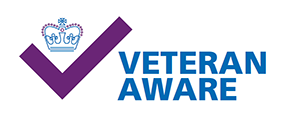Emotional Wellbeing
Your health is important, both during pregnancy and afterwards. Health doesn't just mean your physical health—your emotional wellbeing is really important too. There are many tips and steps you can take to feel physically and emotionally at your best in pregnancy.
Diet
What you eat is important - it’s a good time to really think about your diet and make some changes that can have a big impact.
Sleep and rest
There may be times when you are full of energy and times when you feel exhausted. It’s important to make time to relax and wind down. You might find mindfulness or meditation useful.
Exercise
If you already take regular exercise then don’t stop! Talk to your midwife or doctor if you think you might be doing too much. If you don’t take regular exercise, think about doing something that appeals to you—swimming, yoga and walking are all excellent ways to keep fit and lift your mood if you are new to exercise.
Relationships
This is a time to think about who you have around you to share your pregnancy and thoughts about your baby. Think about who will be around to support you when your baby arrives—this may be your partner, your mum, your sister or a friend.
Relationships can change during pregnancy. If you are concerned about this, talk to your midwife or doctor.
Talk to someone
Many women are worried about the impact a baby will have on their lives and how they will cope with all the changes ahead. These worries might include:
- Becoming a mother - will I be good enough?
- Will I stop work?
- Will my relationship with my partner and family and friends change?
- Do I have enough support to help me be the best mum I can be?
- Will my pregnancy progress normally?
- What if there are problems with the baby?
- What will giving birth be like - can I do it?
Depression and anxiety in pregnancy
All of these anxieties are common and normal. Talking to other people and sharing your feelings can be reassuring. For some women depression and anxiety can be a problem in pregnancy - about 1 in 10 women will experience some degree of anxiety or depression. Some woman will have a pre-existing mental illness or may have had an illness in the past.
Being pregnant, no matter how happy you may be, will not protect you from becoming unwell during or after pregnancy. If you are one of this group of women, talk to your midwife, GP or other health professional for advice and an individualised plan.
Family wellbeing
- Click here to view our ICON poster 'Babies cry, you can cope' to help those who may need extra support whilst staying at home
Domestic abuse
You do not have to wait for an emergency situation to find help. If domestic abuse is happening to you, it's important to tell someone and remember you're not alone.
One in four women experience domestic abuse or domestic violence at some point in their lives.
Pregnancy is known to be a trigger for domestic abuse and abuse may get worse during pregnancy or after the baby is born.
Below are the links to further information and there is a 24-hour National Domestic Abuse Helpline Tel: 0808 2000 247
Cover your tracks online http://safe2speak.co.uk/cover-your-tracks/
Email - helpline@womensaid.org.uk
Useful website links and resources
- Domestic abuse in pregnancy
- The First Step Knowsley - Tel: 0151 548 3333
- St Helens Domestic Abuse Support - Tel: 01744 743 200
- Cheshire and Merseyside Women’s Health and Maternity free app - This app provides up-to-date guidance on all areas of female wellbeing, including periods and contraception, menopause and pelvic health, immunisations and pregnancy. Download the app on Google Play or the App Store for your trusted health advice in one place.
You should call 999 if you're in immediate danger.
- About the Team
Perinatal Mental Health Midwife - Joanne Battensby
Perinatal Mental Health Midwife - Joanne Calveley-Jones






